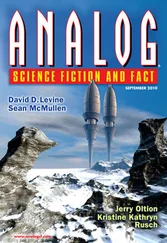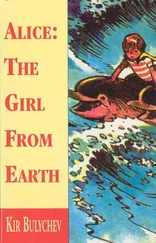But farm boys from Huron County, knowing hardly anything about this big deep north of the Precambrian Shield and the wild rivers, nevertheless were drawn-some of them were, for a time-drawn to the strips of bush along the creeks, where they fished and hunted and built rafts and set traps. Even if they hadn’t read a word about that sort of life they might make their forays into it. But they soon gave it up to enter upon the real, heavy work of their lives, as farmers.
And one of the differences between farmers then and now was that in those days nobody expected recreation to play any regular part in the farming life.
My father, being a farm boy with that extra, inspired or romantic perception (he would not have cared for those words), with a Fenimore Cooper-cultivated hunger, did not turn aside from these juvenile pursuits at the age of eighteen or nineteen or twenty. Instead of giving up the bush, he took to it more steadily and seriously. He began to be talked about and thought about more as a trapper than as a young farmer. And as a solitary and slightly odd young man, though not a person who was in any way feared or disliked. He was edging away from the life of a farmer, just as he had edged away earlier from the idea of getting an education and becoming a professional man. He was edging towards a life he probably could not clearly visualize, since he would know what he didn’t want so much better than what he wanted.
A life in the bush, away from the towns, on the edge of the farms-how could it be managed?
Even here, where men and women mostly took whatever was cut out for them, some men had managed it. Even in this tamed country there were a few hermits, a few men who had inherited farms and didn’t keep them up, or who were just squatters come from God knows where. They fished and hunted and travelled around, were gone and came back, were gone and never came back-not like the farmers who whenever they left their own localities went in buggies or sleighs or more often now by car, bound on definite errands to certain destinations.
He was making money from his trapline. Some skins could bring him as much as a fortnight’s work on a threshing gang. So at home they could not complain. He paid board, and he still helped his father when it was necessary. He and his father never talked. They could work all morning cutting wood in the bush, and never say a word, except when they had to speak about the work. His father was not interested in the bush except as a woodlot. It was to him just like a field of oats, with the difference that the crop was firewood.
His mother was more curious. She walked back to the bush on Sunday afternoons. She was a tall upright woman with a stately figure, but she still had a tomboy’s stride. She would bunch up her skirts and expertly swing her legs over a fence. She was knowledgeable about wildflowers and berries and she could tell you the name of any bird from its song.
He showed her the snares where he caught fish. That made her uneasy, because the fish could be caught in the snares on a Sunday, just as on any other day. She was very strict about all Presbyterian rules and observances, and this strictness had a peculiar history. She had not been brought up as a Presbyterian at all, but had led a carefree childhood and girlhood as a member of the Anglican Church, also known as the Church of England. There were not many Anglicans in that part of the country and they were sometimes thought of as next thing to Papists-but also as next door to freethinkers. Their religion often seemed to outsiders to be all a matter of bows and responses, with short sermons, easy interpretations, worldly ministers, much pomp and frivolity. A religion to the liking of her father, who had been a convivial Irishman, a storyteller, a drinker. But when my grandmother married she had wrapped herself up in her husband’s Presbyterianism, becoming fiercer than many who were brought up in it. She was a born Anglican who took on the Presbyterian righteousness-competition just as she was a born tomboy who took on the farm-housewife competition, with her whole heart. People might have wondered, did she do this for love?
My father and those who knew her well did not think so. She and my grandfather were mismatched, though they didn’t fight. He thoughtful, silent; she spirited, sociable. No, not for love but for pride’s sake she did what she did. Not to be outdone or criticized in any way. And not to have anybody say that she regretted a decision that she had made, or wanted anything that she couldn’t have.
She stayed friends with her son in spite of the Sunday fish, which she wouldn’t cook. She took an interest in the animal skins he showed her, and heard how much he got for them. She washed his smelly clothes, whose smell was as much from the fish bait he carried as from the pelts and guts. She could be exasperated but tolerant with him as if he was a much younger son. And perhaps he did seem younger to her, with his traps and treks along the creek, and his unsociability. He never went after girls, and gradually lost touch with his childhood friends who were doing so. She did not mind. His behavior might have helped her to bear a disappointment that he had not gone on in school, he was not going to become a doctor or a minister. Maybe she could pretend that he might still do that, the old plans-her plans for him-being not forgotten but just postponed. At least he was not just turning into a silent farmer, a copy of his father.
As for my grandfather, he passed no opinion, did not say whether he approved or disapproved. He maintained his air of discipline and privacy. He was a man born in Morris, settled in to be a farmer, a Grit and a Presbyterian. Born to be against the English Church and the Family Compact and Bishop Strachan and saloons; to be for universal suffrage (but not for women), free schools, responsible government, the Lord’s Day Alliance. To live by hard routines, and refusals.
My grandfather diverged a little-he learned to play the fiddle, he married the tall temperamental Irish girl with eyes of two colors. That done, he withdrew, and for the rest of his life was diligent, orderly, and quiet. He too was a reader. In the winter he managed to get all his work done-and well done-and then he would read. He never talked about what he read, but the whole community knew about it. And respected him for it. That is an odd thing-there was a woman too who read, she got books from the library all the time, and nobody respected her in the least. The talk was always about how the dust grew under her beds and her husband ate a cold dinner. Perhaps it was because she read novels, stories, and the books my grandfather read were heavy. Heavy books, as everybody remembered, but their titles are not remembered. They came from the library, which at that time contained Blackstone, Macauley, Carlyle, Locke, Hume’s History of England. What about An Enquiry Concerning Human Understanding} What about Voltaire? Karl Marx? It’s possible.
Now-if the woman with the dustballs under the beds had read the heavy books, would she have been forgiven? I don’t believe so. It was women who judged her, and women judged women more harshly than they did men. Also, it must be remembered that my grandfather got his work done first-his woodpiles were orderly and his stable shipshape. In no point of behavior did his reading affect his life.
Another thing said of my grandfather was that he prospered. But prosperity was not pursued, or understood, in those days, quite in the way it is now. I remember my grandmother saying, “When we needed something done-when your father went into Blyth to school and needed books and new clothes and so on-I would say to your grandfather, well we better raise another calf or something to get a bit extra.” So it would seem that if they knew what to do to get that bit extra, they could have had it all along.
Читать дальше












